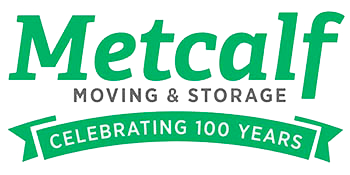METCALF MOVING BLOG
6 New Home Safety Tips to Review Before You Move In
Moving into a new home is an exciting milestone, but prioritizing safety is essential before settling in. Whether your home is brand new or pre-owned, taking key steps before your household move will protect your belongings and, most crucially, your family. Here are six safety suggestions to consider before you unpack those boxes.
1. Change the Locks
One of the initial things a new homeowner should do is change the locks. Previous owners, contractors, realtors, or even neighbors may still have keys to your property. By installing new locks, you’ll ensure that only those you trust can access your home. Deadbolts and smart locks are great investments; now is the perfect moment to switch. If you opt for smart locks, you’ll gain added convenience and security features, like controlling access remotely through an app.
2. Inspect and Test the Security System
If your home already has a security system in place, give it a thorough inspection. Test the alarms, sensors, and control panels to ensure everything is working correctly. If the house has no system installed, now is an excellent time to consider adding one. Modern systems come with various features, such as motion detectors, doorbell cameras, and remote monitoring capabilities through smartphone apps. In an emergency, some homeowners use a monitoring service that responds quickly. However, even a basic DIY system with motion sensors and cameras can offer significant protection.
3. Check Smoke and Carbon Monoxide Detectors
Verify whether your new home has adequately installed smoke and carbon monoxide detectors. Ensure that each floor of your home, including the basement and attic, has working smoke alarms. Carbon monoxide detectors should be placed near sleeping areas and any potential sources of carbon monoxide, like gas appliances or garages. If you find the alarms are missing or outdated, install new ones immediately. Look at the production date on the back of each device to see how often you should replace the detector. Typically, it is every 7 to 10 years. Opt for models that feature both battery backup and hardwired connections for maximum reliability.
4. Evaluate Electrical Safety
Older homes may have outdated wiring that could pose a fire hazard. If you’re moving into a house built several decades ago, having a licensed electrician inspect the electrical system is a good idea. Check outlets to ensure they are grounded and that none are overloaded. Faulty wiring or old circuit breakers can cause overheating and fires. Additionally, if your home doesn’t have Ground Fault Circuit Interrupter (GFCI) outlets in areas like kitchens, bathrooms, or garages, you should consider installing these. GFCI outlets protect against electrical shock and are crucial in areas where water is present.
5. Secure Windows and Sliding Doors
Windows and sliding doors can be vulnerable entry points for intruders. Check all windows to ensure they lock securely, and consider adding additional window locks for an extra layer of security. Sliding glass doors can often be bypassed, even when locked, so installing a sliding door security bar or a door pin is a simple way to reinforce them. Another precaution to protect your home from severe weather is installing storm shutters or impact-resistant windows if you live in a storm-prone area.
6. Have an Emergency Plan
Every family should have an emergency plan in place before an unexpected situation occurs. Once you move in, map out emergency exits in each room, designate a meeting spot outside the home, and ensure everyone in your household knows how to escape safely during a fire or other emergency. It’s also a good idea to keep a fire extinguisher on each floor and ensure everyone knows how to use it. Have a designated shelter area for weather-related emergencies, such as a basement or interior room. Regularly reviewing and practicing the plan with family members can ensure everyone knows what to do when seconds count.
Ready to Move In?
Before decorating and settling into your new home, focus on these essential safety steps to prevent potential risks and unexpected costs. Securing your home ensures peace of mind, allowing you to enjoy your new space fully.
We can help with a safe and secure move. Contact us for a free quote.












